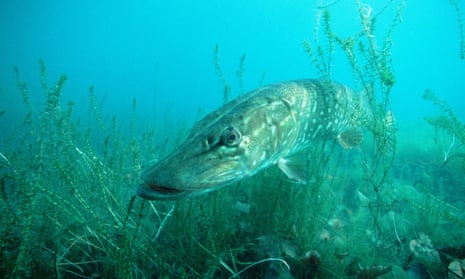Many effects of global warming appear gradually but can cause sudden and devastating changes. A rise in sea levels is one; it makes estuaries and lagoons slightly more saline, which in the case of the Norfolk Broads, suddenly threatened a big attraction, angling.
This is because tiny “golden” algae called Prymnesium parvum, which thrive in slightly saline or mineral rich water, can turn toxic, suffocating the fish by destroying their gills.
What exactly turns harmless algae into a large-scale menace is not fully understood but, in Norfolk and other places where changes in temperature and salinity have occurred, it has caused a series of calamities.
In 2015, when a large toxic bloom occurred in Hickling Broad and Somerton, thousands of fish died and 700,000 were rescued by a joint effort between the Environment Agency and angling clubs. The rescue cost £40,000 but saved the fishery.
Since about 40% of the income from the Broads derives from angling this represents a serious economic threat to the area as well as an environmental disaster. Before the Prymnesium outbreaks began, this area was one of the most important pike fisheries in Europe.
Fortunately a solution to the problem has been found and, surprisingly, it is hydrogen peroxide, often used for bleaching hair. In dilute quantities, it is a way of adding oxygen to large bodies of water when fish are in distress. Scientists at the John Innes Centre in Norwich have discovered that slightly larger concentrations kill the algae but harm nothing else.

Comments (…)
Sign in or create your Guardian account to join the discussion